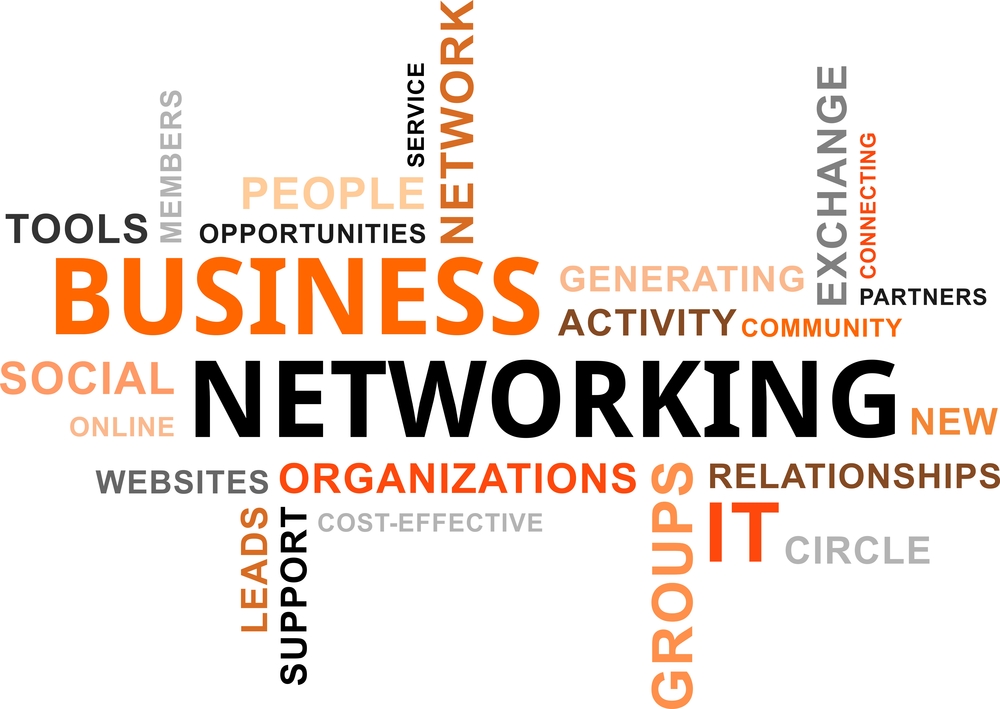 In previous blog articles, I’ve discussed the importance of networking, both for entrepreneurs and people who are employed. I know that for many people, networking is played out; the idea of networking may even inspire eye-rolling, but bear with me. For entrepreneurs, networking done right can lead to new and better business opportunities and long-term sustainability. For employees, networking is important for remaining in the loop for higher quality employment and promotion opportunities.
In previous blog articles, I’ve discussed the importance of networking, both for entrepreneurs and people who are employed. I know that for many people, networking is played out; the idea of networking may even inspire eye-rolling, but bear with me. For entrepreneurs, networking done right can lead to new and better business opportunities and long-term sustainability. For employees, networking is important for remaining in the loop for higher quality employment and promotion opportunities.
In my experience, it’s clear that some people think it’s better to have a specific type of network. The unstated implication is that the best networks have a certain look to them. In other words, many people assume the best networks include certain types of people — people who are similar to themselves. Here’s why I believe this is wrong.
According to multiple, peer-reviewed studies, simply being in an open network instead of a closed one is the best predictor of career success. Here’s what this means in practice:
- When you’re part of a narrowly focused, closed network, you repeatedly hear the same ideas, which reaffirm what you already know and believe. This is what happens when you build a network that’s full of people who are the same as you.
- In contrast, when you’re part of a diverse, broad, and open network, you become part of multiple groups. This means that you can have various unique relationships, experiences, and knowledge that other people in closed or narrowly focused groups don’t have.
There can be challenges associated with being part of open, broad networks. You can feel like a misunderstood outsider because few people may understand why you think the way you do. But the upsides are amazing.
Three Ways to Build a Diverse Network
1) Squeezing it in while doing the various parts of your life can build in some diversity. When you consider the activities that you may be involved with through your children/family, you’ll probably realize that you’ve got more diversity than you expect. I call it “incidental” networking.
 2) Try to pursue different hobbies and interests. Odds are that when you interact with people with whom you have shared interests that are outside of your work or business, you’ll develop a more diverse network that includes people who have divergent opinions and perspectives. If you’re lucky, you’ll meet people with whom you share common ground but who work in different fields/industries.
2) Try to pursue different hobbies and interests. Odds are that when you interact with people with whom you have shared interests that are outside of your work or business, you’ll develop a more diverse network that includes people who have divergent opinions and perspectives. If you’re lucky, you’ll meet people with whom you share common ground but who work in different fields/industries.
3) Finding ways to volunteer to support causes that you care about. The difference between this and #2 from above, is that there’s something inherently different about doing projects/work, than sports and leisure. The lessons you learn and the insights that you gain may lead to surprising new ways to see things.
You’ll notice that these suggestions don’t include gender, ethnic, racial, political, neurodiverse, various physical abilities, or other multiple aspects of diversity – but I think that all of these layers of diversity are worth integrating into one’s network. That’s a whole other blog post.
Have you ever wished you could get inside the head of a hiring manager? You can. Dr. Helen Ofosu is a Career Coach/Counsellor with a difference. She has worked for organizations to create hiring and screening tools. She’s created countless pre-screening tests, interviews, simulations, and role plays for organizations of all kinds.
Dr. Helen’s training in Industrial and Organizational (I/O) Psychology means she is a genuine expert in evaluating work-related behaviours. She uses those skills to help hiring managers tell the difference between people who say the right things during interviews and people who actually deliver on the job. In other words, Dr. Helen understands first-hand how job candidates are assessed.
Do you need help navigating the world of work? Contact Dr. Helen today for a free and confidential initial consultation by phone, email, or via direct message on Twitter, Facebook, or LinkedIn. If something urgent comes up, I’m also available by a voice or video on Magnifi, an expertise-on-demand app.
More than career coaching, it’s career psychology®.
I/O Advisory Services – Building Resilient Careers and Organizations.
Please share this article using any of the social media icons below.



